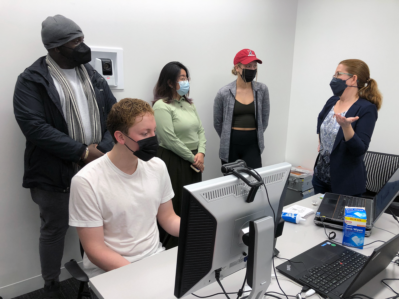
As AI increasingly influences our lives, its impact on early childhood development (ECD) remains under-explored. Given the critical role of early childhood in cognitive and emotional growth, understanding AI’s risks and opportunities for young children is essential. A half-day session by UNICEF and the Wharton Neuroscience Initiative aims to foster expert collaboration to guide informed policy-making.
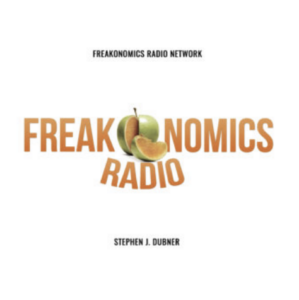
Zab Johnson has a conversation with Stephen J. Dubnet on Freakonomics about celebrity branding and what happens when that celebrity does the unthinkable.

Faculty Affiliate, Emily Falk, and collaborators used fMRI data to explore how partisan messaging is processed in the brain.

Professor Michael Platt, Harvard Fellow Camille Testard, and Professor Lauren J.N. Brent from the University of Exeter find Hurricane Maria transformed a monkey society by changing the pros and cons of their interpersonal relations.

Michael Platt and collaborators studied how physiological measures like heart rate synchrony can guide decision-making in groups.
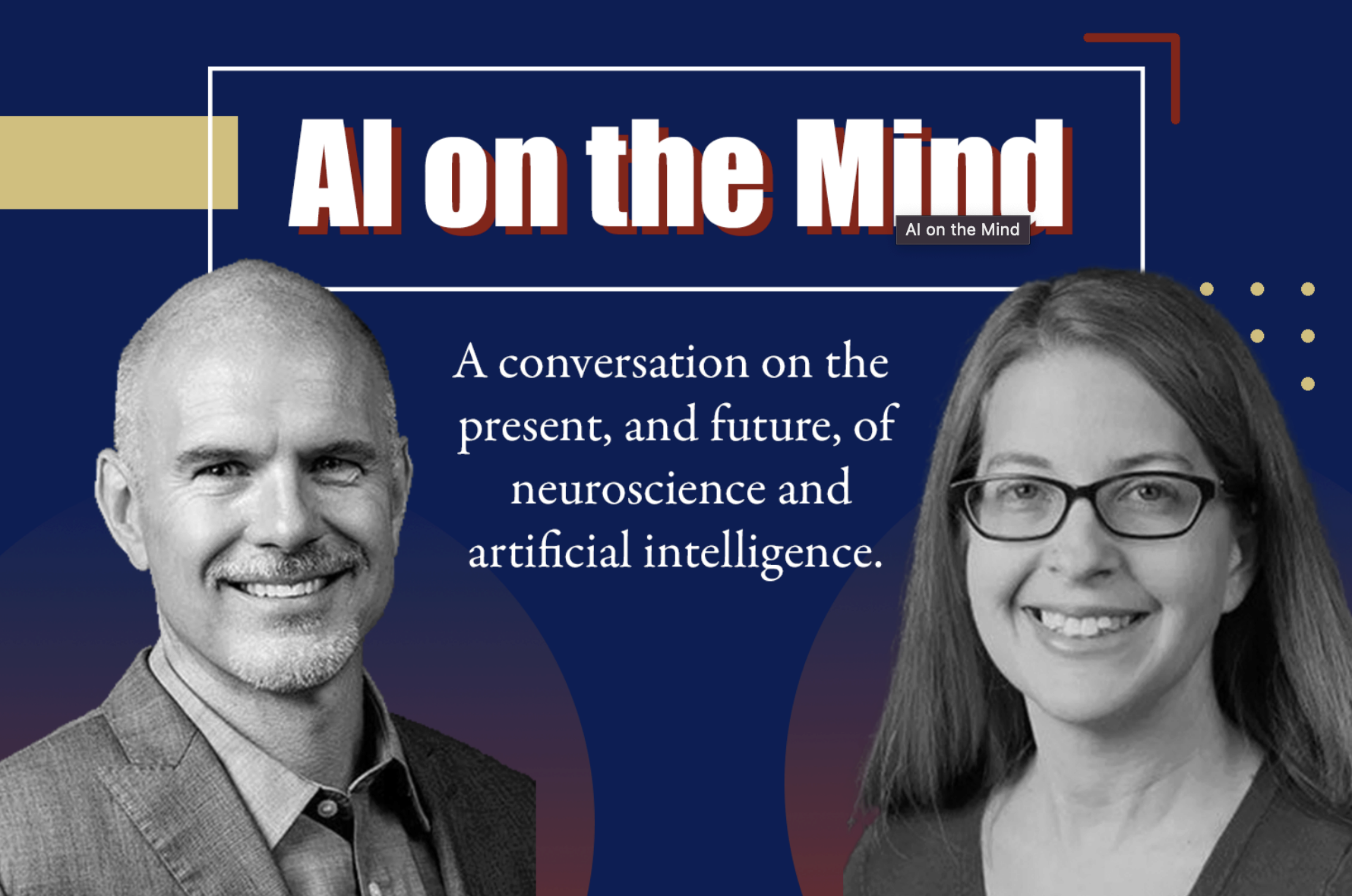
Michael Platt and Zab Johnson have a conversation on the present, and future, of neuroscience and artificial intelligence.

Michael Platt and Peter Sterling say the local fertility rate is falling because of broken social bonds and a sense of collective sadness.
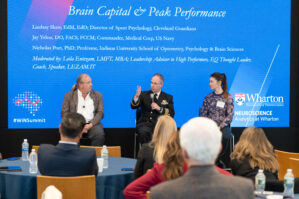
On Friday, November 3, more than 100 attendees from industry and academia gathered on the eighth floor of Huntsman Hall at the Wharton School for the 2023 Wharton Neuroscience Summit, the first since 2019. View the full recap.

Understanding why going without sleep eases depression in some people may lead to less taxing methods to boost mood. Philip Gehrman goes in depth to explain his work on a collaborative study with Scientific American.

How do leaders find a tangible sense of how to encourage and attain true teamwork, defined as a blend of collaboration, coordination, and partnership? Michael Platt and Zab Johnson write of recent advancements in neuroscience that now point to an answer.

A team of neuroscientists and legal experts, including our own Wharton Neuroscience collaborator Gideon Nave, published a perspective in Science drawing attention to the need to develop science-backed policies that take into account children’s vulnerabilities in the digital world.

The Neuroeconomics Summer School brings together postdocs and advanced graduate students in Neuroscience, Psychology, Economics, and related disciplines for intensive and advanced study of the rapidly growing interdisciplinary field of Neuroeconomics.
Wharton Neuroscience’s Executive Director (far right), Elizabeth (Zab) Johnson and Barbara Kahn created Wharton MKTG 239/739: Visual Marketing, which combines the principles of visual neuroscience with the practical applications of marketing. Read about how the course came about, how this unusual mashup works in the classroom, and how the course applies classroom concepts through a unique partnership with The Hershey Company.

A new Annenberg School of Communication study led by Danielle Cosme and Emily Falk reveals that we share the social media posts that we think are the most relevant to ourselves or to our friends and family.
A new Korn Ferry report reveals how leaders can use neuroscience to make their teams more collaborative, more cooperative and more effective. See what Amelia Haynes and Michael Platt have to say.

A large colony may provide clues about the biology of traumatic stress resulting from climate change and war. To learn more, read this article by Ingrid Wickelgren where she interviews our own, Michael Platt.
Click Here

A new study from Annenberg School’s Communication Neuroscience Lab finds that personal stories, instead of cold facts, make people want to help keep others safe. In a new study published in Social Science & Medicine, doctoral candidate, Mary E. Andrews, and Director of the Communication Neuroscience Lab, Emily Falk, found that the use of personal narratives increased people’s beliefs about protecting vulnerable groups.
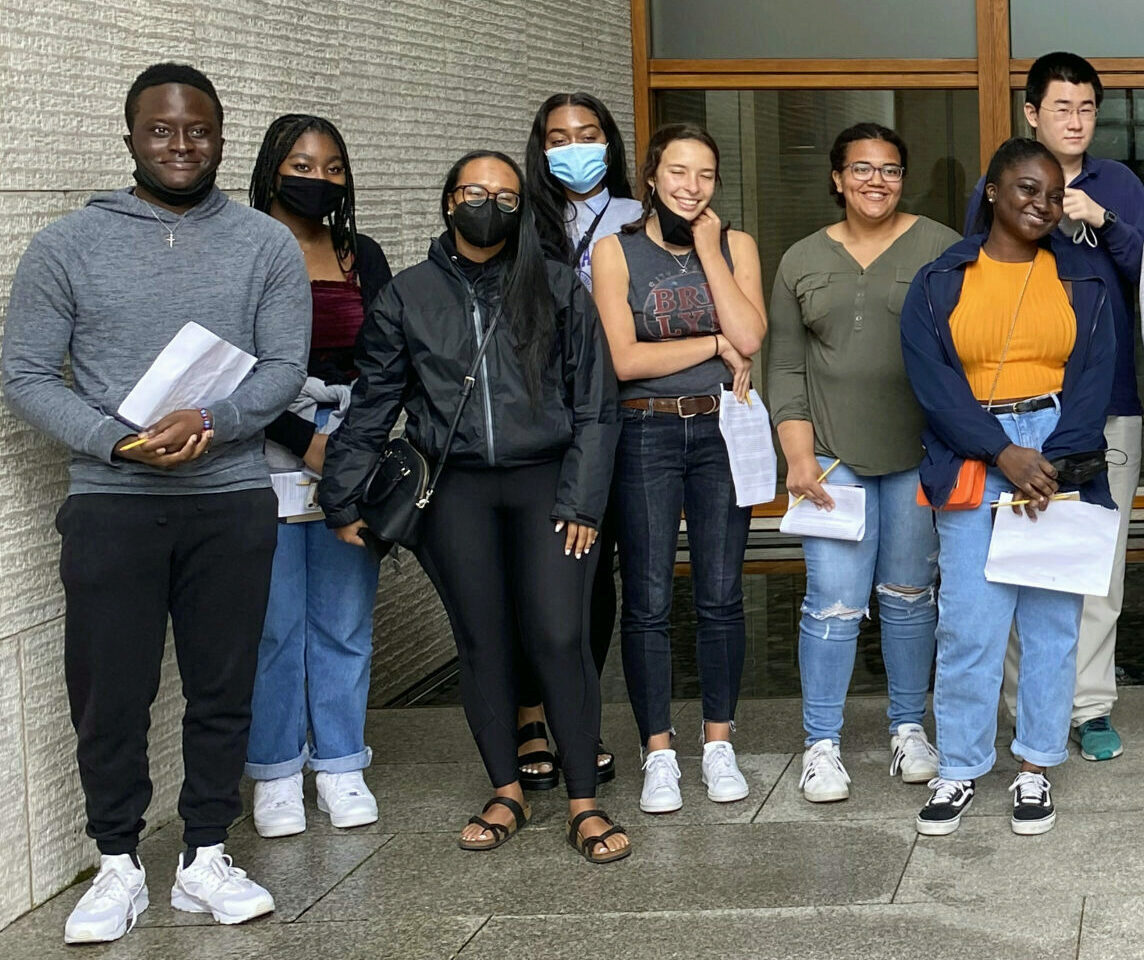
Ileri Akinnola (far left) is one of two recipients of the inaugural Applied Neuroscience and Business Analytics Summer Undergraduate Internship. Ileri spent 10 weeks this summer working on forthcoming marketing research that uses Netflix viewing data to examine how psychological makeup influences the movies people choose to watch.
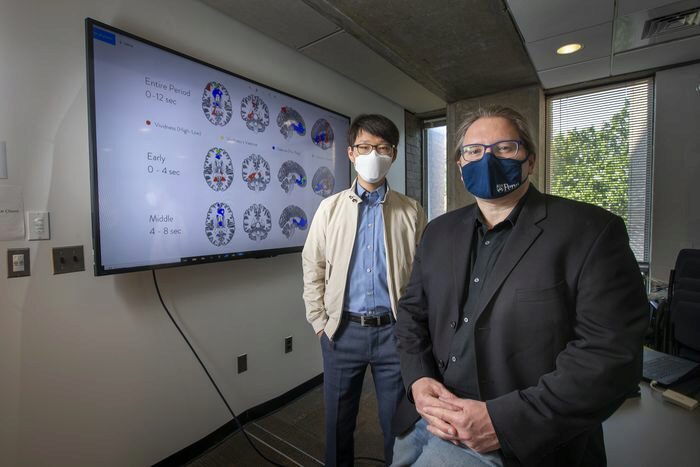
Joseph Kable is a neuroscientist and a professor in the psychology department at Penn. With him is Arthur Lee, a former grad student at Penn and now a postdoctoral fellow at the University of California Berkeley. He used MRI scans to show that the human brain uses two different “networks” to engage in the act of imagination.

The Washington Post features Professor Shiri Melumad’s research on how cell phones can reduce stress. Professor Melumad is an Assistant Professor of Marketing and a Wharton Neuroscience Faculty Affiliate. Her research suggests that consumers who are particularly susceptible to stress are more likely to show emotional and behavioral attachment to their phones, suggesting that health professionals might actually encourage the use of smartphones as a means to reduce stress across a variety of contexts.

A new study published in the journal Nature by Professor Gideon Nave and co-authors suggests that one pint of beer or glass of wine may shrink overall brain volume. Professor Nave is the Carlos and Rosa de la Cruz Assistant Professor of Marketing and a Wharton Neuroscience Faculty Affiliate. The study looked at data from the UK Biobank and found that the brains of 50 year old people who said they drank one pint of beer or glass of wine a day had reductions in both white and gray matter that looked as if they had added 2 years to the age of their brains. The study was also covered recently by CNN.com.
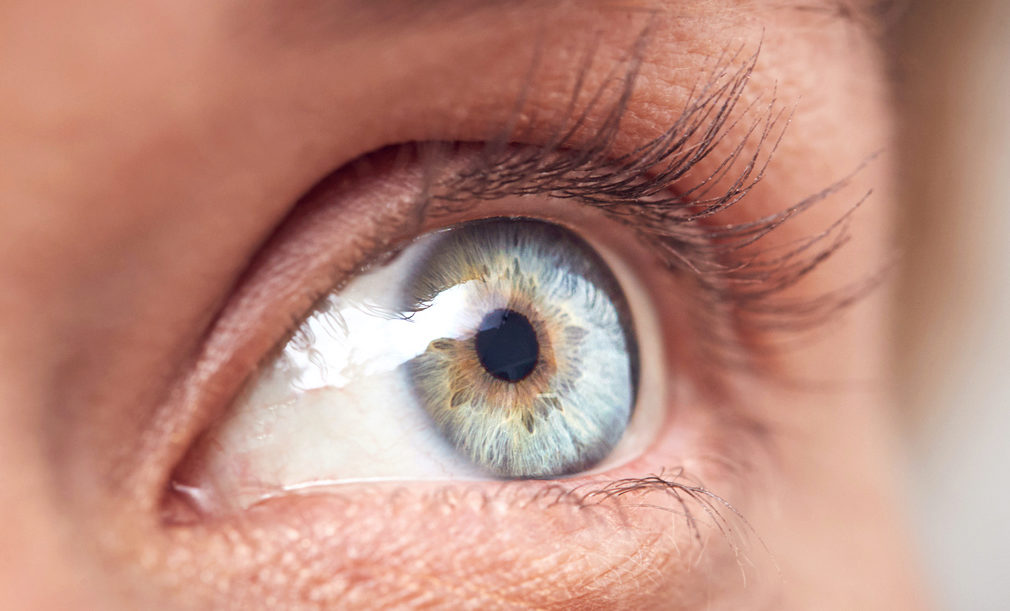
The direction in which people look and how dilated their pupils get can reveal the decision they’re about to make, according to research published in the Proceedings of the National Academy of Sciences by Wharton Neuroscience Initiative’s faculty director, Michael Platt and WiN colleagues. The work grew out of conversations between WiN and one of its corporate partners, Vanguard, about why people more frequently make unwise financial decisions as they age.
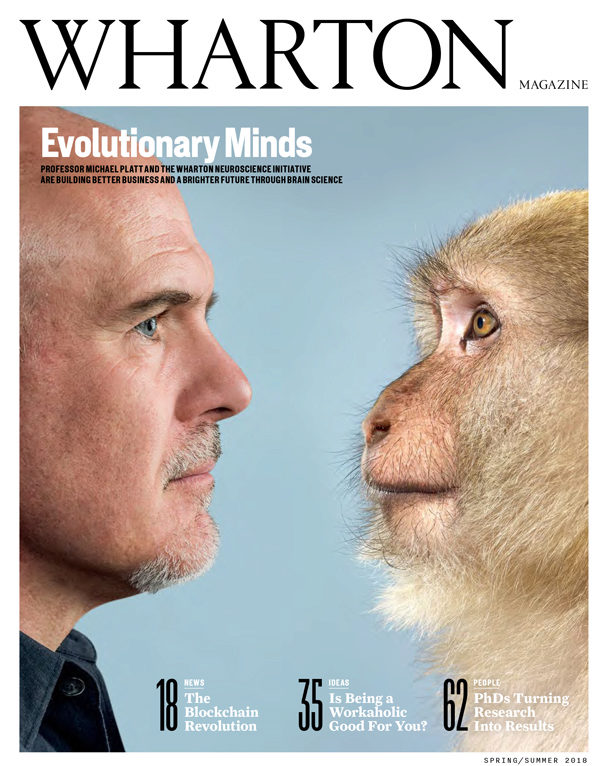
Professor Michael Platt and the Wharton Neuroscience Initiative are exploring evolutionary brain science and using high-tech tools to unlock the secrets of human psychology. What does any of that have to do with business? More than you’d guess.

Wharton Dean Geoffrey Garrett is delighted to announce an anonymous $10 million gift to amplify opportunities and outcomes of the cutting edge Wharton Neuroscience Initiative (WiN). This commitment will propel faculty research and teaching, student learning, and corporate engagement through WiN.

Philly Magazine interviewed Wharton Neuroscience Initiative Faculty Affiliate Anjan Chatterjee, the Frank A. and Gwladys H. Elliott Professor and Chair of Neurology at Pennsylvania Hospital and the founding director of the Penn Center for Neuroaesthetics.
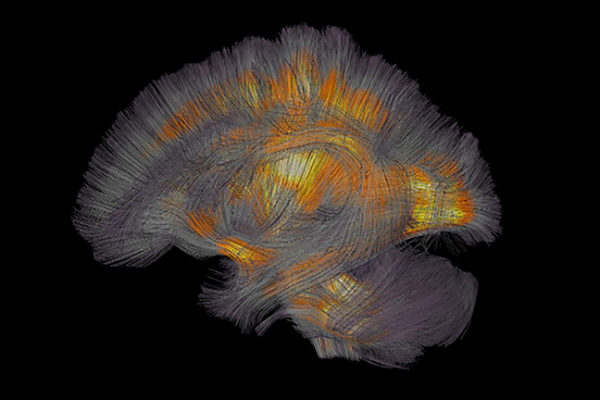
A study published in Nature Neuroscience led by WiN faculty affiliate Danielle Bassett (Bioengineering) and postdoctoral fellow Evelyn Tang (now at the Max Planck Institute for Dynamics and Self-Organization) looked at how brain activation patterns might affect how long it takes to learn new information. Quick learners have a higher dimensional representation than slow learners and show greater cognitive coding efficiency.

A recent large-scale study by Wharton Neuroscience Initiative Faculty Affiliates Gideon Nave and Colin Camerer, and their co-authors challenges the notion that testosterone may reduce empathy.

Pursuing a joint degree in marketing and psychology, doctoral student Arthur Lee has also plugged in to a “rare network” that bridges neuroscience and business through Wharton’s Neuroscience Initiative.

Poets & Quants named Diana Robertson, Samuel A. Blank Professor in Legal Studies in Wharton’s Department of Legal Studies & Business Ethics, and Wharton Neuroscience Initiative Faculty Affiliate, as one of the top 50 Undergraduate Business Professors for 2018. Among other projects, Robertson recently explored what happens to the brain when people encounter ethical issues. She and her collaborators scanned the brains of 57 Wharton MBA students, and found that brain structure looks different in students that are more advanced in their thinking about ethics compared to those that are less advanced.
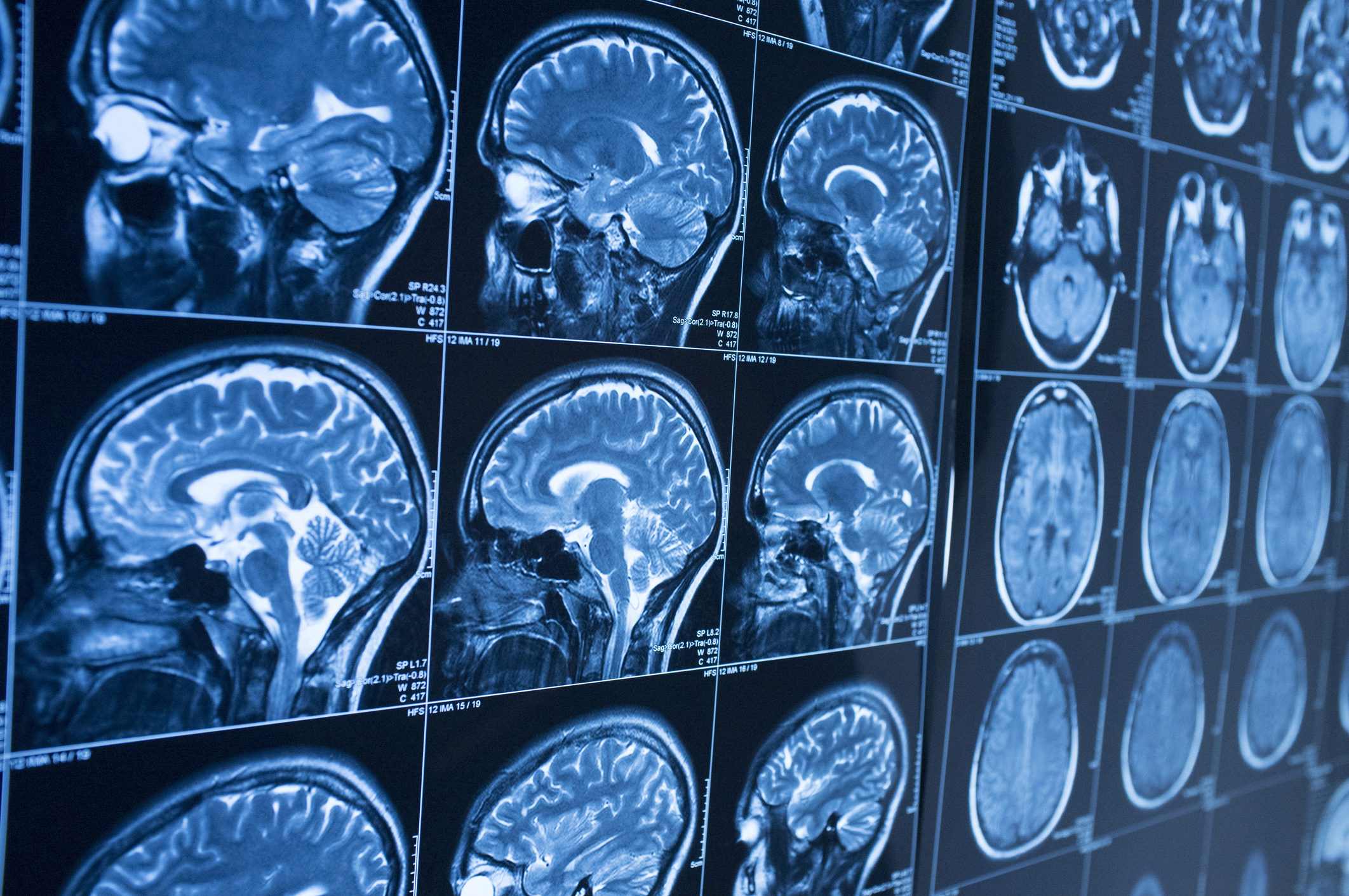
Using a large dataset and controlling for a variety of factors, including sex, age, height, socioeconomic status, and genetic ancestry, WiN faculty affiliates Gideon Nave (Marketing) and Joe Kable (Psychology) found that people with larger brains rated higher on measures of intelligence and educational attainment. But size explains only about 2 percent of the variation in cognitive performance.

Donors tend to act more on emotion than rationality when choosing organizations to support. Marketing professor and Wharton Neuroscience Initiative Faculty Affiliate, Deborah Small, discusses why this is so on a Knowledge@Wharton podcast.

In a new Scientific American blog article, Wharton Neuroscience Faculty Affiliate, Emily Falk, and WiN Director, Michael Platt, explain how the “function of your social brain network is tied to the shape of your social network.”

Marketing professor and Wharton Neuroscience Initiative Faculty Affiliate, Gideon Nave, discusses his study that explores the link between music and personality traits, and how companies could look at their customers’ online playlists to potentially tailor product offerings.

A team of researchers including Wharton Neuroscience faculty affiliates Gideon Nave and Colin Camerer find that testosterone supplements may impair men’s decision making. This work is published in Psychological Science and has been featured in the Chicago Tribune and Newsweek.
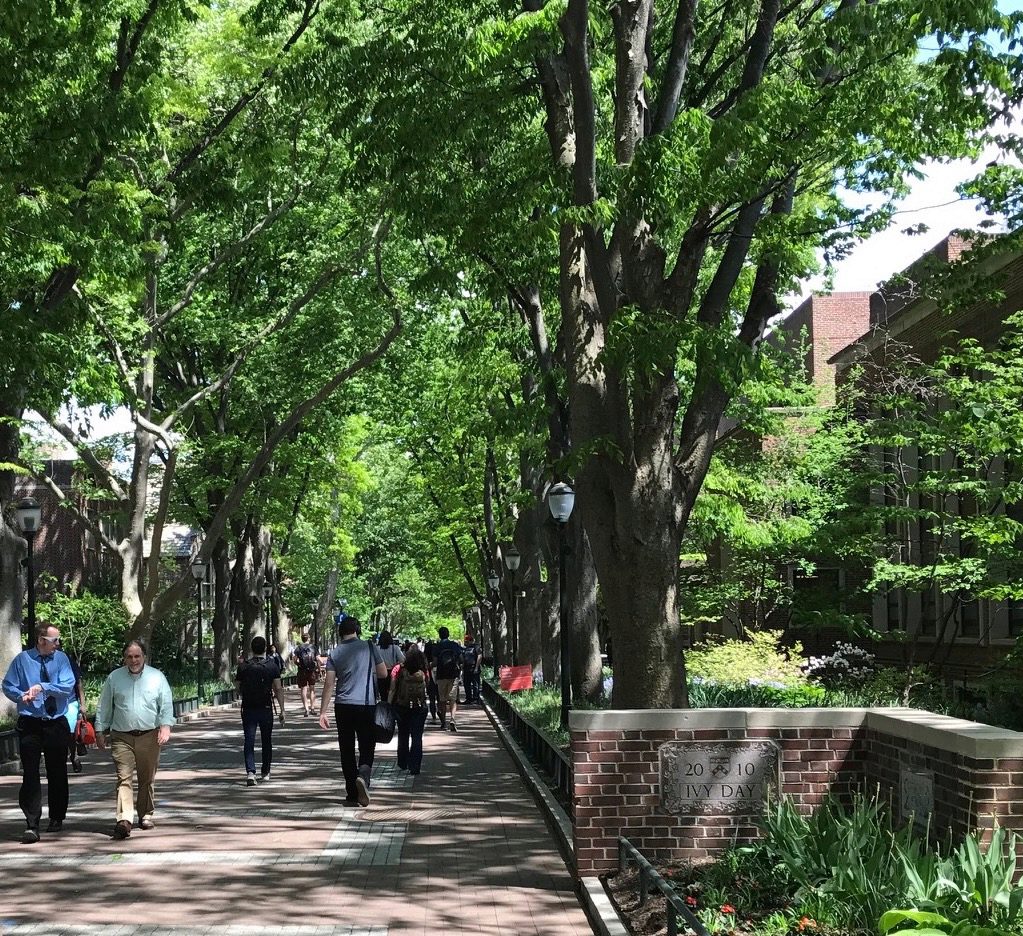
The Penn Current features the Wharton Neuroscience Initiative and the deliberate mash-up of neuroscience and business.

Penn Medicine Magazine features new PIK Professor and WiN Faculty Affiliate, Konrad Kording, and his ability to apply data science to provide new insights into complex systems, uncertainty, and precision.
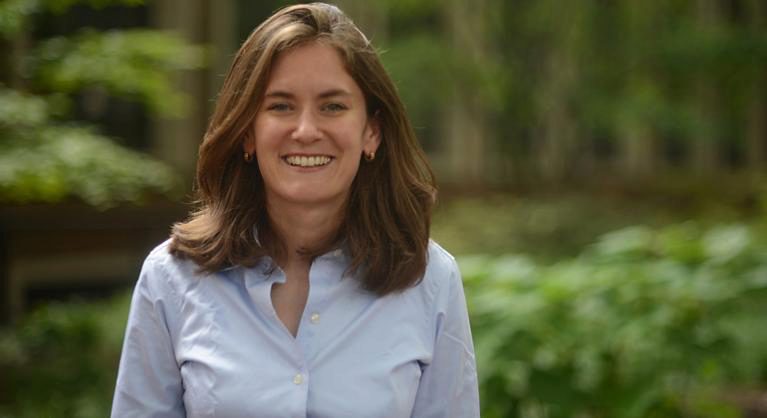
A team of researchers led by Emily Falk, associate professor at the Annenberg School for Communication and Faculty Affiliate of the Wharton Neuroscience Initiative discovered a new way to help predict the success of public health campaigns using neural responses.

Given the choice between receiving $20 immediately or $40 a month from now, which would you pick? A new study from Joseph Kable’s lab finds that people who have imaginations with more vivid details are less likely to delay gratification.

A team of researchers led by Coren Apicella, assistant professor of psychology and faculty affiliate of the Wharton Neuroscience Initiative find that a woman is less likely to choose competition than a man, even when she performs equally well, unless competing with herself for a better outcome.



